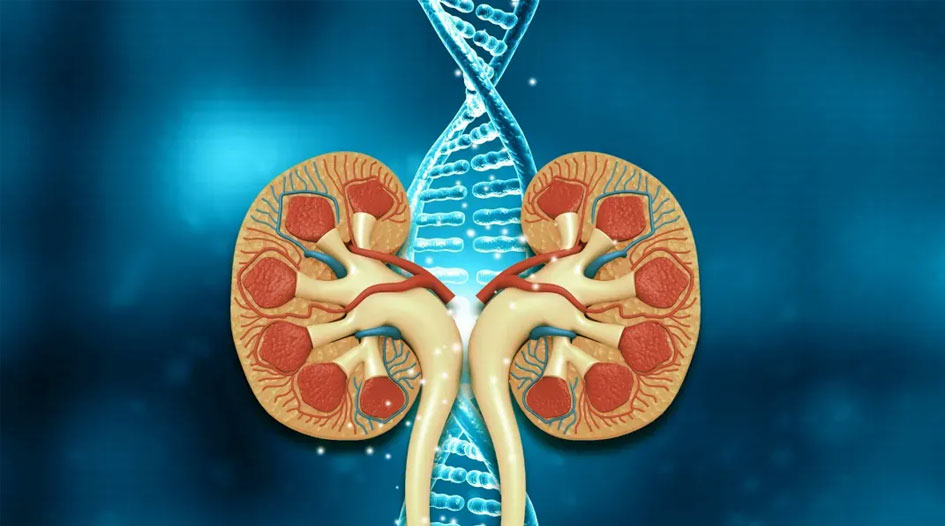
Genetic renal diseases – Alports
Alport Syndrome is a rare genetic kidney disorder that affects the kidneys, ears, and eyes. It is caused by mutations in genes responsible for producing type IV collagen, a protein that helps build the structure of the kidneys’ filtering units (glomeruli). As a result, the kidneys gradually lose their ability to filter blood properly, leading to chronic kidney disease. The condition can also cause hearing loss and vision problems.
Causes & Inheritance
Alport Syndrome is usually inherited and can be passed through families in different ways:
- X-linked Alport Syndrome (XLAS): The most common form, passed through the X chromosome. Males are usually more severely affected.
- Autosomal recessive: Both parents carry the abnormal gene.
- Autosomal dominant: Only one abnormal gene copy is enough to cause the condition.
Symptoms
- Blood in urine (hematuria) from early childhood
- Protein in urine (proteinuria) as the disease progresses
- Gradual decline in kidney function leading to chronic kidney disease or kidney failure
- Hearing loss, usually starting in late childhood or adolescence
- Eye abnormalities such as cataracts, lens changes, or retinal problems
Treatment & Management
There is currently no cure for Alport Syndrome, but treatments help slow disease progression and improve quality of life. Medications such as ACE inhibitors or ARBs are often prescribed to control blood pressure and reduce protein leakage in urine. Hearing aids may be recommended for hearing loss, and regular eye check-ups help manage vision problems. In advanced stages, dialysis or kidney transplantation may be needed for kidney failure.
Prevention & Care
Since Alport Syndrome is inherited, genetic counseling is important for families with a history of the condition. Early detection and regular monitoring of kidney function, hearing, and vision allow timely interventions and better long-term outcomes.



